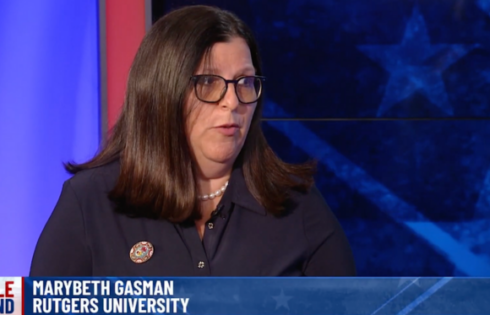Do a majority of Georgetown University’s students really support paying reparations for slavery? Not exactly.
 As The College Fix has recently reported, of the 3,845 students who voted in the spring election, 2,541 students — or 66.08 percent — voted to approve a measure to approve a new student fee to create a fund for the descendants of slaves sold by the university in the 1830s.
As The College Fix has recently reported, of the 3,845 students who voted in the spring election, 2,541 students — or 66.08 percent — voted to approve a measure to approve a new student fee to create a fund for the descendants of slaves sold by the university in the 1830s.
Sixty six percent sounds like a strong majority. But it’s more complicated than that. As a piece published in Intellectual Takeout points out, it’s technically not a majority when other aspects are factored in:
In reality, 2,541 students voted for the reparations and 1304 against. Turnout was only 57.9 percent of the current student body. The proper understanding is that 66 percent of the 58 percent who voted approved reparations. The structure of the vote was a voluntary response, i.e., only students that feel passionate about the bill one way or the other would click on the link sent out to them.
This logically implies that most of those who didn’t vote likely did not feel passionately about the issue. By definition of the format chosen for voting, those who do not respond either are not in favor of reparations or at least do not feel strongly enough to vote in favor of them. The takeaway: Only 38 percent of the current student body actually supports the referendum enough to take the 30 seconds to vote in favor of it. However, the media used these results to claim that the university “overwhelmingly voted” for reparations. This is true in one sense, but at its intended core, it’s an exaggeration.
What’s more, it remains to be seen whether administrators will even impose the fee despite the vote outcome. Meanwhile, two Georgetown University students have also filed a complaint with the student-led Constitutional Council to nullify the results of the recently approved referendum, alleging various election violations.
But the Intellectual Takeout column argues the vote was really about advancing a narrative:
It’s being used by the media to drive a narrative the media wants to hear and they want to talk about. Honestly, would there be the same media appetite for a vote about a crusading issue of the right?
MORE: I don’t owe reparations for slavery
IMAGE: Shutterstock
Like The College Fix on Facebook / Follow us on Twitter




Add to the Discussion